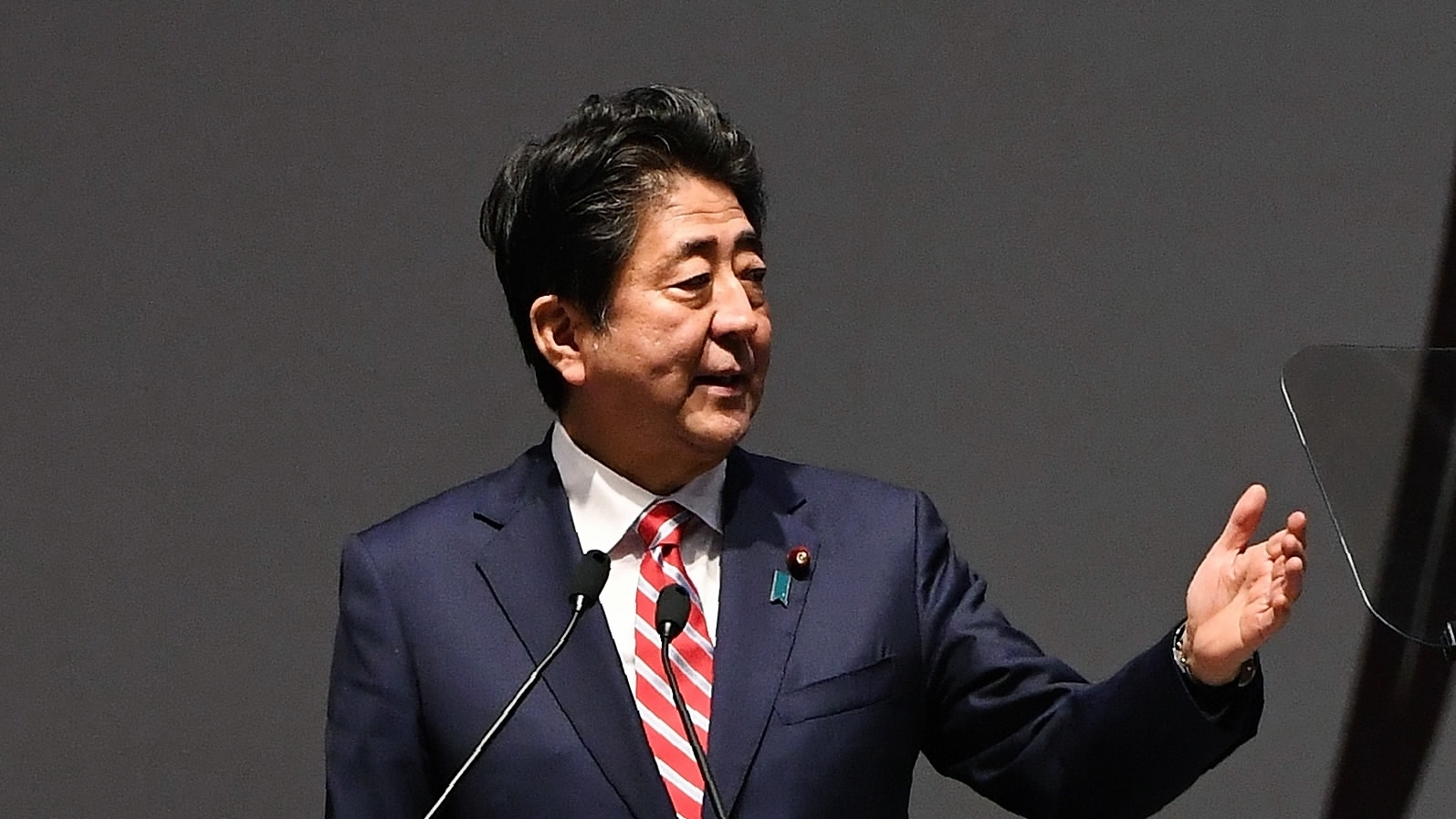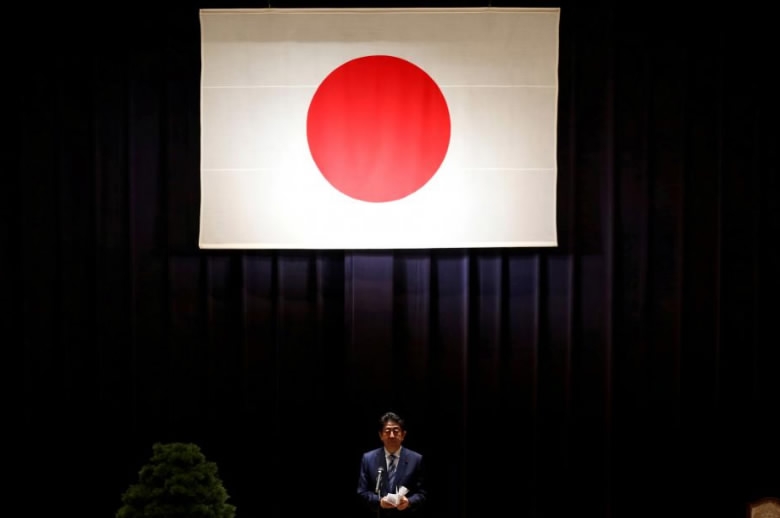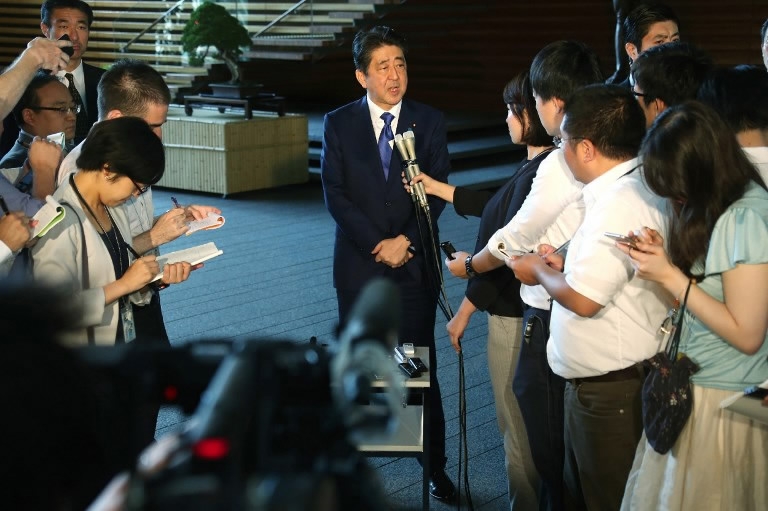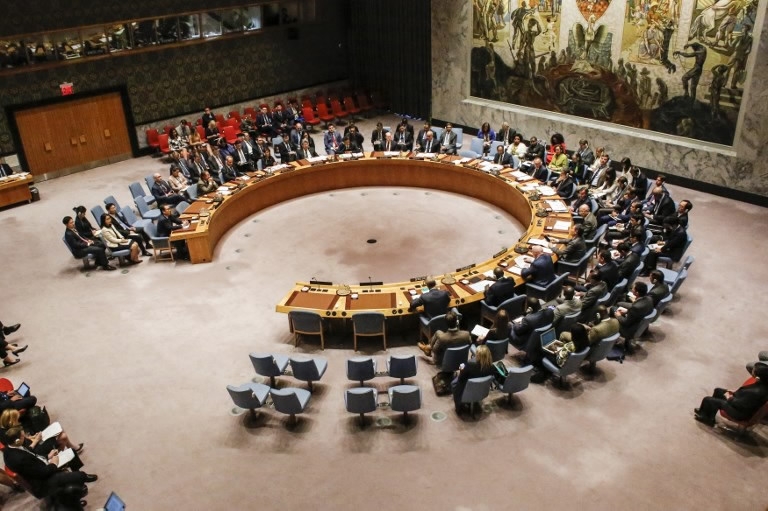
Politics
11:36, 18-Sep-2017
Japanese PM Abe considers snap election as early as October
CGTN

Japanese Prime Minister Shinzo Abe is considering calling a snap election as early as next month to take advantage of his improved approval ratings and disarray within the main opposition party, government and ruling party sources have said.
Abe’s ratings have recovered to 50 percent in some polls, helped by public jitters over the DPRK’s missile and nuclear tests and chaos in the opposition Democratic Party, which has been struggling with single-digit support and defections.
Abe told executives of his Liberal Democratic Party (LDP) and its junior coalition partner, the Komeito Party, that he might dissolve parliament’s lower house for a snap poll after the legislature convenes for an extra session from September 28, sources said.
Top LDP and Komeito officials will meet Monday to discuss preparations, they added.

Japan's Prime Minister Shinzo Abe address Japan Self-Defense Force's senior members during a meeting at the Defense Ministry in Tokyo, Japan, September 11, 2017. /Reuters Photo
Japan's Prime Minister Shinzo Abe address Japan Self-Defense Force's senior members during a meeting at the Defense Ministry in Tokyo, Japan, September 11, 2017. /Reuters Photo
"Until now, it appeared the election would be next autumn, but...we must always be ready for battle," domestic media quoted Komeito Party chief Natsuo Yamaguchi as saying to reporters on Saturday during a visit to Russia.
One option is to hold a snap election on October 22, when three by-elections are scheduled, sources said. Other possibilities are later in October or after an expected visit by US President Donald Trump in early November.
Abe will probably make a decision after returning from a September 18-22 trip to the United States, sources said.
Abe’s ratings had sunk below 30 percent in some surveys in July, battered by suspected cronyism scandals and a perception that he had grown arrogant after more than four years in office.

Japan's Prime Minister Shinzo Abe answers questions at his official residence in Tokyo on September 15, 2017. /AFP Photo
Japan's Prime Minister Shinzo Abe answers questions at his official residence in Tokyo on September 15, 2017. /AFP Photo
His popularity rebounded somewhat after a cabinet reshuffle in early August and has since been helped by worries over the DPRK, which on Friday fired a ballistic missile over Japan, its second such move in less than a month.
"If we have a snap election now, we need to explain it to the public, including how we will cope with the threat from North Korea," Koichi Hagiuda, a senior LDP executive, told public broadcaster NHK.
Given that there is no need for a general election until late 2018, a snap poll could prompt criticism of Abe for creating a political vacuum at a time of rising tensions over regional security.
However, an early vote would not only take advantage of Democratic Party disarray but could also dilute a challenge from an embryonic party that allies of popular Tokyo Governor Yuriko Koike, an ex-LDP lawmaker, are trying to form.
Abe’s coalition would be likely to lose its two-thirds “super majority” in the lower house but keep a simple majority, political sources have said.

Members of the UN Security Council attend a meeting to discuss new sanctions against the DPRK on September 11, 2017 at the UN Headquarters in New York. /AFP Photo
Members of the UN Security Council attend a meeting to discuss new sanctions against the DPRK on September 11, 2017 at the UN Headquarters in New York. /AFP Photo
Loss of the two-thirds grip could dim prospects of Abe achieving his goal of revising Japan’s pacifist constitution to clarify the military’s role, though members of a new conservative party linked to Koike might back the change.
Any constitutional amendment requires approval by two thirds of both chambers and a majority in a public referendum.
That risk could make Abe hesitate.
"I am skeptical about the consensus that Abe will call a snap election because doing so poses a risk, albeit small, to his agenda of constitutional revision," said Jeffrey Kingston, director of Asian studies at Temple University Japan.
2105km
Source(s): Reuters

SITEMAP
Copyright © 2018 CGTN. Beijing ICP prepared NO.16065310-3
Copyright © 2018 CGTN. Beijing ICP prepared NO.16065310-3